Heart-Rending Poems for Sci-Fi Fanatics
The best science fiction poetry when you want your mind blown and your heart ripped right out of your chest.
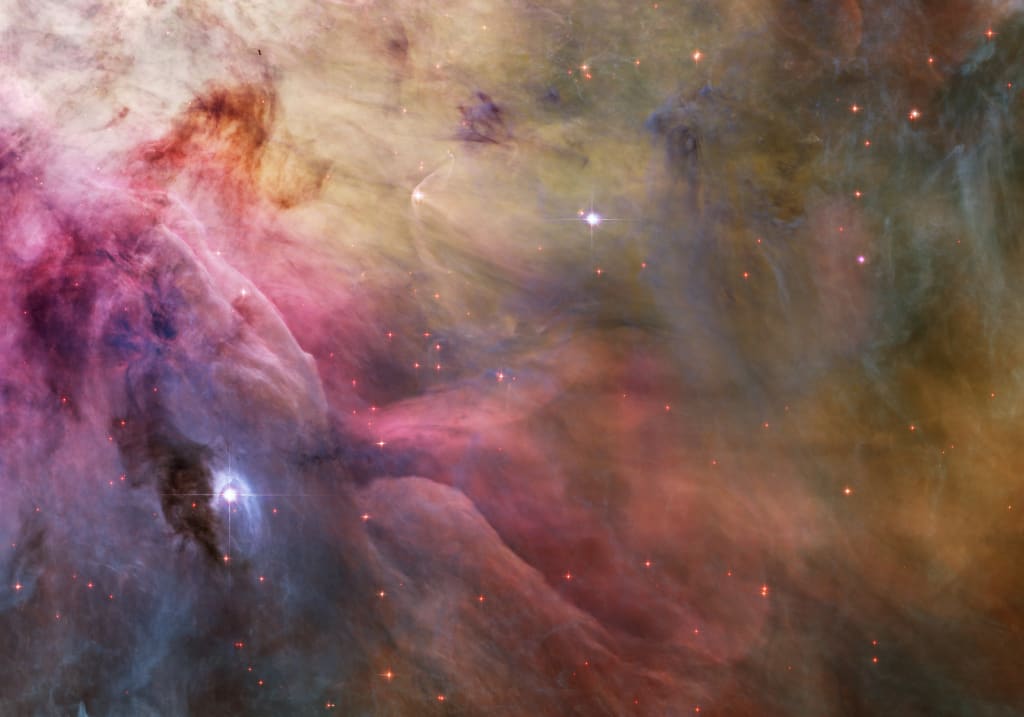
Distant relatives to the familiar "Twinkle, Twinkle, Little Star," these sci fi poems are raw, real, and sometimes almost too close for comfort. They blur the line between speculation and reality in their carefully composed stanzas and bring us to mini existential crises - not earth-shattering ones. Each is just the right size to bring along to a good evening of poetry for the starry-eyed dreamer. (And if no one you know is cool enough to host one, you'd better send out invitations to your own. I suggest hot beverages, an antipasto platter, and no, I'm not doing anything, of course I would be delighted to come, thank you for asking!)
"A Quiet World" by Jeffrey McDaniel

Jeffrey McDaniel's terse "A Quiet World" supposes a place where we can only speak an allotted number of words (one hundred and sixty-seven, to be precise) every day. When each one counts, how do things change - and how do they stay, maddeningly, exactly the same? It's such a fascinating concept I almost wish it were longer (but that would defeat the point). Here's an excerpt:
Late at night, I call my longdistance lover and proudly sayI only used fifty-nine today.I saved the rest for you.When she doesn't respond, I knowshe's used up all her words
"The Migration of Darkness" by Peter Payack

If darkness were an organism, Payack would create its very own documentary - and that’s exactly what he does in “The Migration of Darkness,” winner of the Rhysling Award for science fiction poetry. While we think of it as a natural scientific phenomenon with a very clear explanation, Payack describes it in more ancient terms - as a thing, capable of independent movement and purpose. (If you’re intrigued by this truly inventive poet, Payack’s published works can be found in Amazing Science Fiction Stories, Asimov's Science Fiction, Rolling Stone, and The New York Times.)
Each evening, shortly after sunset,darkness covers the land.Having mystified thinkers for millennia,the mechanism for this occurrencehas now been identified: migration.Darkness, it has been found, is composedof an almost infinite number of particles,which roost and reproduce up northwhere they have fewer natural enemies:Forest fires, lampposts, lasers, blazing sunlight,torches, candles, lighthouses, limelight, and electricityare relatively rare in the polar regions.
“Eighteen years old, October eleventh” by Joe Haldeman

Joe Haldeman's poem connects two stories; the first tells of a drunk eighteen-year-old who loses an opal earring - a perhaps insignificant story if not for the second, which tells of the future-being who finds it. Looking down at the found jewel, the discoverer:
felt the sense of loss in that silly girl,dead as a trilobite;felt the pain that had gone into penetratingthe soft hyperbolic paraboloid of cartilagethat then displayed the decoration;felt its sexual purpose:to attract a dissimilar pattern of genesto combine and recombine a trillion trillion times,and become herself.
"Space Oddity" by David Bowie
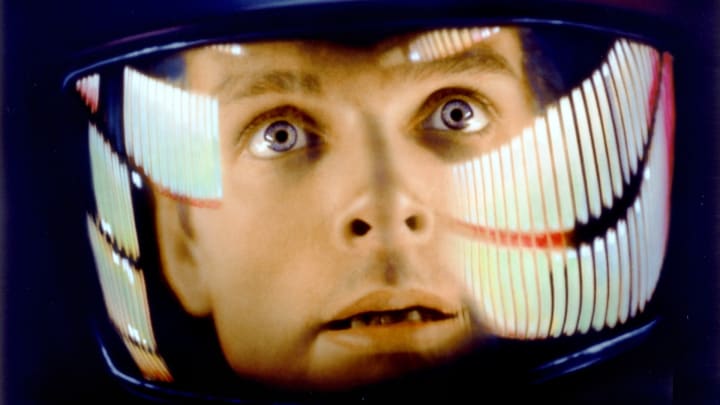
The tragedy of space travel meets moving poetry in David Bowie's "Space Oddity" (and if you don't think 80s pop music is poetry, we can just stop having this discussion right now). Wondering how we might choose to respond in a similar situation is what makes this one a truly heart-rending choice for any list of the best sci-fi poetry. Remember the lyrics and let the chills go down your spine:
This is ground control to major Tom, you've really made the gradeAnd the papers want to know whose shirts you wearNow it's time to leave the capsule if you dareThis is major Tom to ground control, I'm stepping through the doorAnd I'm floating in a most peculiar wayAnd the stars look very different todayHere am I sitting in a tin can far above the worldPlanet Earth is blue and there's nothing I can do
"Aniara" by Harry Martinson
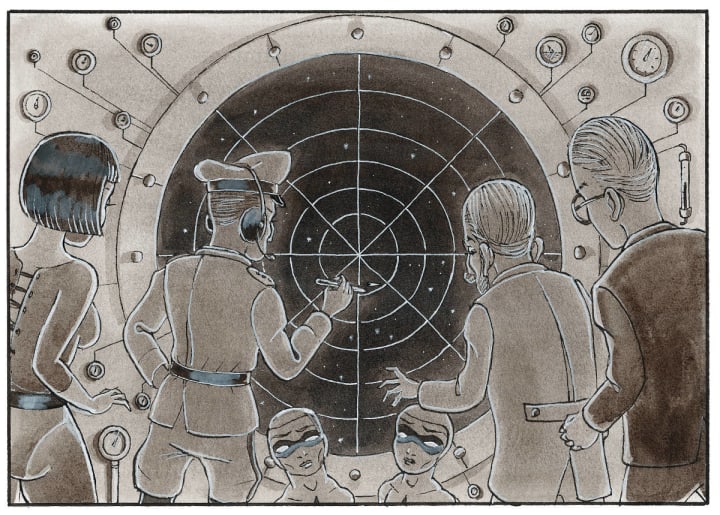
Whether you love poetry or science (or both), you won’t be disappointed by Swedish Nobel Laureate Henry Martinson’s “Aniara,” a tale danger and daring in 102 dizzying cantos. Not for the faint of heart, but definitely worth the journey, the poem tells the story of would-be Mars colonists who are thrown off course and leave the solar system to their peril. An incredible space opera with real work behind the sense of wonder, you'll need to give this one time to percolate in your awestruck mind.
We're slowly coming to suspect that the spacewe're traveling in is of a different sortfrom what we thought whenever that word "space"was decked out by our fantasies on Earth.We're coming to suspect now that our driftis even deeper then we first believed,that knowledge is a blue naivetéwhich with a measured quantity of insightimagined that the Mystery has structure.We now suspect that what we claim is spaceand glassy clarity around Aniara’s hullis spirit, everlasting and impalpable,that we have strayed in spiritual seas.
"Poem-Rocket" by Alan Ginsburg
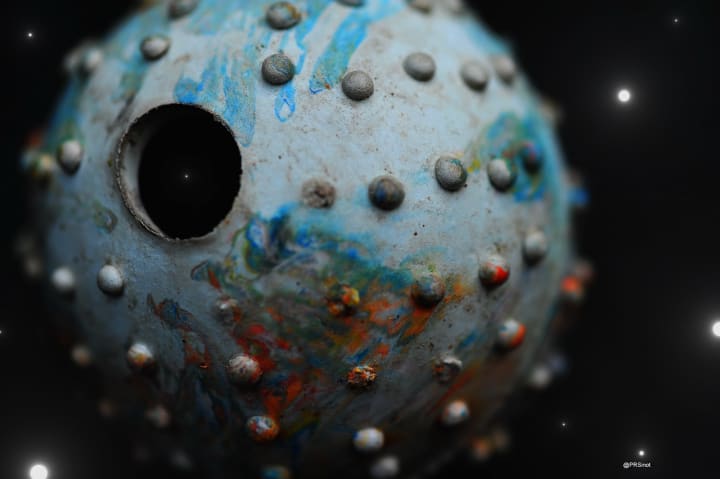
If you are a fan of Alan Ginsburg, but not familiar with "Poem-Rocket," then you're in for a real treat. This is one of my favorites of his - he rambles on about Moon politicians and washing his feet in death and how the Great Brain of the Universe has a golden pocket and his sperm - and if all that doesn't scare you away then waste no more of your time NOT glorying in the groovy weirdness that is "Poem-Rocket." Example of groovy weirdness:
I am another Star.Will you eat my poems or read themor gaze with aluminum blind plates on sunless pages?do you dream or translate & accept data with indifferent droopings of antennae?do I make sense to your flowery green receptor eyesockets? do you have visions of God?Which way will the sunflowers turn surrounded by millions of suns?This is my rocket my personal rocket I send up my message BeyondSomeone to hear me thereMy immortalitywithout steel or cobalt basalt or diamond gold or mercurial firewithout passports filing cabinets bits of paper warheadswithout myself finallypure thought
“Attack of the Crab Monsters” by Lawrence Rabb

If you’re thinking of the Roger Corman film of the same name (which, for the uninitiated, is exactly what it sounds like), stop: this poem is way, way better. In fact, I would go so far as to say it might be my favorite one on this list, so read the whole thing. It makes fun of the cliches but then builds to a startling ending that you won’t be able to stop thinking about:
And everyone is surprisedand no one understandswhy each man tries to killthe thing he loves, when the changecomes over him. So now you knowwhat I never found the time to say.Sweetheart, put down your flamethrower.You know I always loved you.
About the Creator
Sarah Quinn
I'm a writer in love with India, Stars Wars, fantasy, travel, and Thai curries. My childhood heroes were Luke Skywalker and Joan of Arc. I muse on superheroes, sci-fi, feminism, and more.




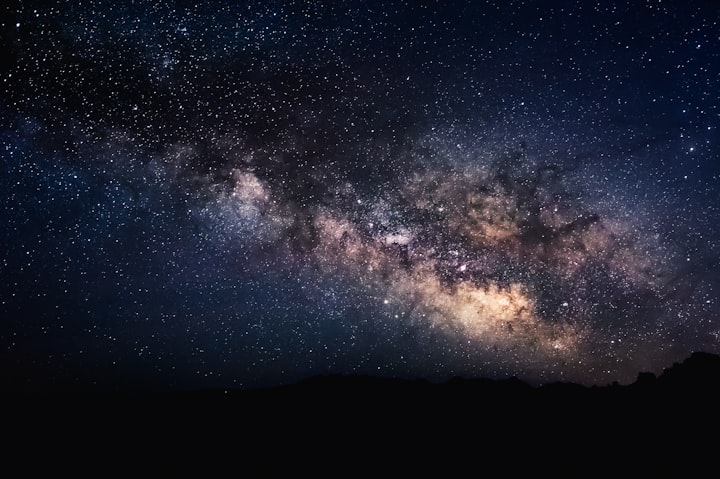

Comments
There are no comments for this story
Be the first to respond and start the conversation.